
Since the signing of the spending relief bill on December 21st, 2020, the outlook for the solar industry has never looked brighter. With the bill dedicating over 35 billion dollars to the clean energy sector, consumers can count on major improvements to solar technology throughout 2021.
Homeowners looking to go solar this year will take advantage of the most affordable prices ever to hit the market as well as the highest quality and most efficient panels ever made! So, let’s take a look at what new tech we can expect to see in the solar industry in 2021!

The Most Efficient Panels Yet…
With more competition than ever, solar tech companies work day and night to provide manufacturers with the designs for the most efficient panels to ever hit the market. In 2015, SunPower released its x-series-x22 panel that has an unbelievable efficiency of 22%. This single panel can convert a little over ⅕ of the sunlight that it receives into electricity. This high-power panel was revolutionary at the time, but it did have its downsides. Because it was several percent more efficient than the next highest panel, it was also one of the most expensive solar panels on the market.
Since 2015, solar tech companies and manufacturers have raced to surpass the 22% mark. Oxford PV, a solar tech company, has developed solar cells that convert over 28% of the sunlight they receive into electricity. They have found that covering traditional solar cells with a thin layer of crystal material called perovskite can increase power generation. The perovskite layer allows the solar cells to absorb a larger portion of the solar spectrum than a traditional silicon panel. The problem is that they have yet to release an entire panel covered in this material to the market.
However, the company hopes to be able to have produced and manufactured functioning panels to have available to solar installation companies across the globe. If this technology proves to be as successful as its initial tests, homeowners and businesses looking to go solar in 2021 could benefit from the most efficient panels yet!
Perovskite (Left) and Silicon (Right)
The Most Affordable Panels Yet…
As official install numbers have yet to be released by Wood Mackenzie and SEIA, it’s difficult to pinpoint exactly how many residential solar systems were installed in 2020. However, it is no secret that 2020 was a big year for the solar industry! Through thriving during a debilitating pandemic, homeowners should be excited to see solar spread even more in 2021. As the demand for solar increases, the solar sector will have to grow. This means dozens and even hundreds of new solar companies will sweep the nation. Although this might not be the greatest news for older solar companies, it is great news for homeowners interested in going solar.
A continual increase in competition will cause solar system prices to drop making 2021 the cheapest year to go solar yet! In order to give a better perspective of solar price drops from year to year, let’s take a look at 2019 and 2020. In 2019, the average cost per a watt for solar was $1.41. Last year that figure dropped to $1.33. Eight cents might not seem like much, but when you plug that data into the average system size of 6,000 watts ($8,460 in 2019 vs. $7,980 in 2018) there is almost a $500 price reduction from 2019 to 2020. The average price per watt has decreased every year for the last decade, which means 2021 is bound to see a healthy price drop. To make matters even better, the federal tax incentive has been renewed and will stay at 26% for the next two years. This means that 2021 will be the cheapest year ever to go solar!
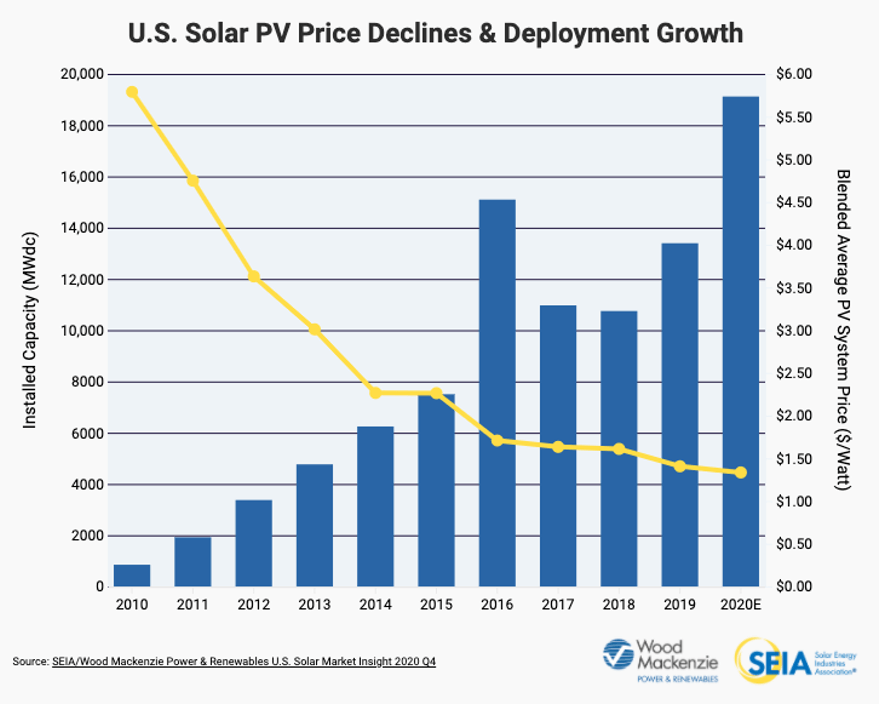
What about Solar Powered Battery Backup in 2021…
With grid blackouts becoming more common than ever, tens of thousands of homeowners have invested in solar powered battery backup systems that can reserve excess solar power to replace bulky generators. Unfortunately, these battery backups are expensive and inefficient.
For example, in order to power an average home during a blackout a homeowner would need to purchase several battery backups. The typical solar battery costs $5,000 to $7,000, which means that a homeowner would have to invest $15,000 in order to have this extra service. While prices should decrease as demand in blackout common states increases, the technology still has a long way to go before becoming cost-effective.
Expect to see the Tesla Powerwall to become increasingly more popular and for solar tech brands to produce their first versions of solar backup.
Innovative and Futuristic Solar Devices…
Now that we have a better idea of how pricing and efficiency of solar panels will be affected in 2021, let’s take a look at some of the latest and greatest solar tech that is being developed or will likely hit the market in coming years.
Solar Skin – Solar skin is a developing technology created by two MIT engineers that allows homeowners to customize the look of their panels. Rather than having aesthetically displeasing, black panels on their roofs, homeowners can now blend their panels with roof tiling, add patterns, and even incorporate art into their solar design!
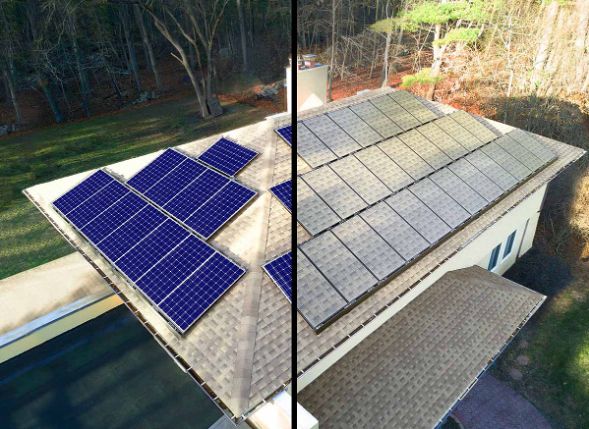
Solar Fabric – For the first time, solar will become a part of our everyday clothing. With every fiber absorbing energy from the sun, solar fabric allows its wearer to produce electricity to charge a phone, keep warm, and have access to power on the go.
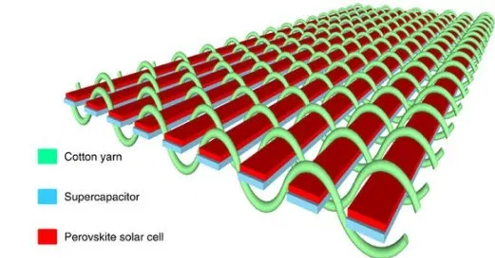
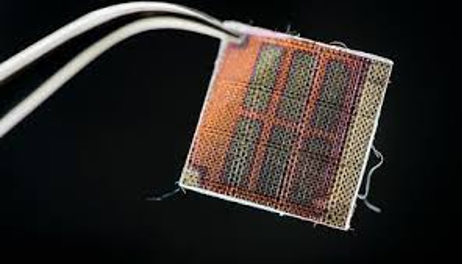
Portable Solar – Portable solar panels are not a new tech by any standards. However, these portable panels are becoming more powerful and affordable for the everyday consumer. Portable solar allows users to enjoy electricity off-the-grid.
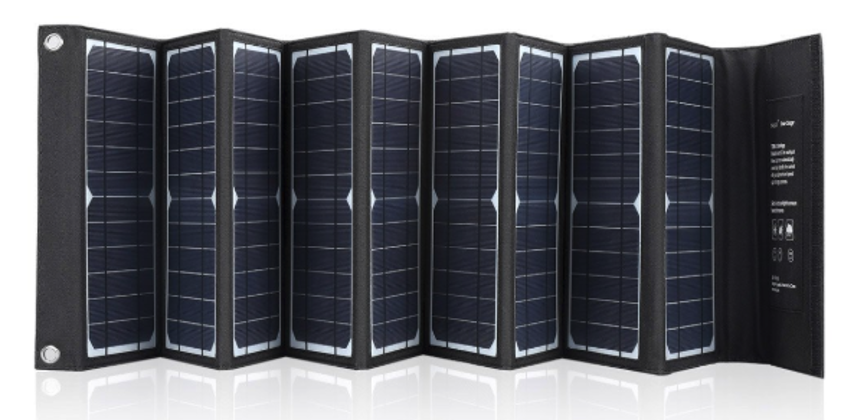
Solar Ocean Farms – We all are familiar with today’s massive desert solar farms, but much of the public is unaware that solar ocean farms are in the works. These floating islands of solar panels will be able to produce massive amounts of energy and play a big role in the development of renewable energy around the globe.
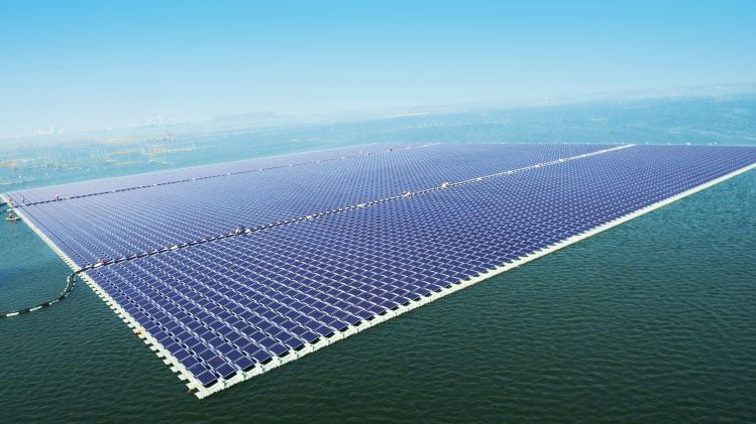
Solar Car – As solar becomes more efficient and compact, some electric vehicle companies have sought to incorporate panels into the roofs of their cars. Some companies have taken it even further and will even make solar one of the main features of their car. For example, Aptera is releasing a car in 2021 that will utilize solar to give its driver an extra 40 miles of range a day!
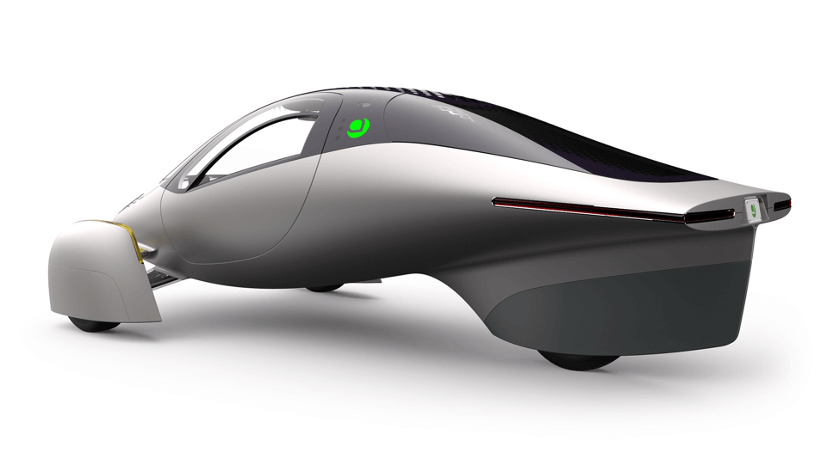
Solar Noise Barriers – In order to prevent obnoxious traffic noise, the US Department of Energy is seeking to adapt the 3,000 miles of highway noise barriers into a renewable energy source. The new structures will incorporate solar panels into the noise blocking walls that are projected to produce enough electricity to power 37,000 homes.
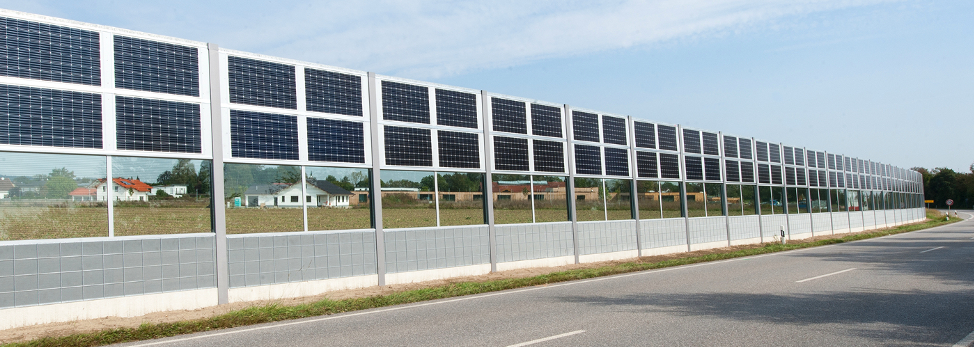
Solar at Night – As we all know, solar panels cannot generate electricity at night. Researchers from the University of California claim that they have discovered a new solar cell that is capable of generating electricity during the night. Although it only produces about a quarter of the energy a solar cell produces during the day, it brings industry changing capabilities to solar.
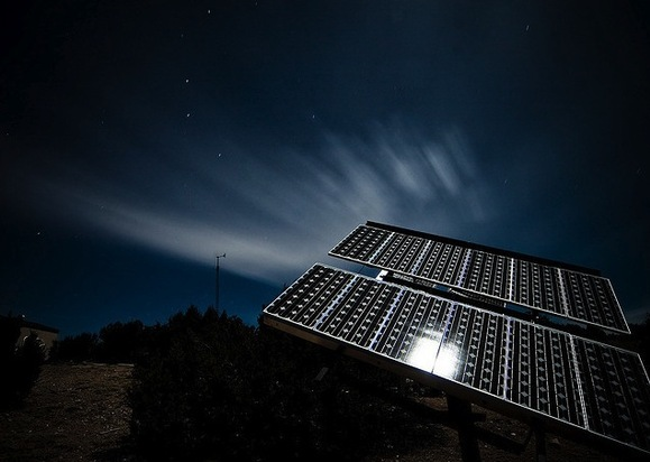
Solar in Space – Researchers are working to develop technology that would allow the energy produced from solar panels on satellites to be transferred back to the earth through microwave energy. Through initial research, this method of solar appears to be significantly more efficient than panels on the ground. Not only does it avoid any weather hazards and clouds, but it also is able to stay in concentrated sunlight for a longer period of time.
Going Solar in 2021
With so many advances in solar technology, there is no better time to go solar! Here at Blue Raven Solar, our customers are experiencing all the benefits of owning a solar system.
If you’d like to know more about how solar can impact your electricity bill, environment, and home value, download our free e-book by clicking here.


Sorry, the comment form is closed at this time.